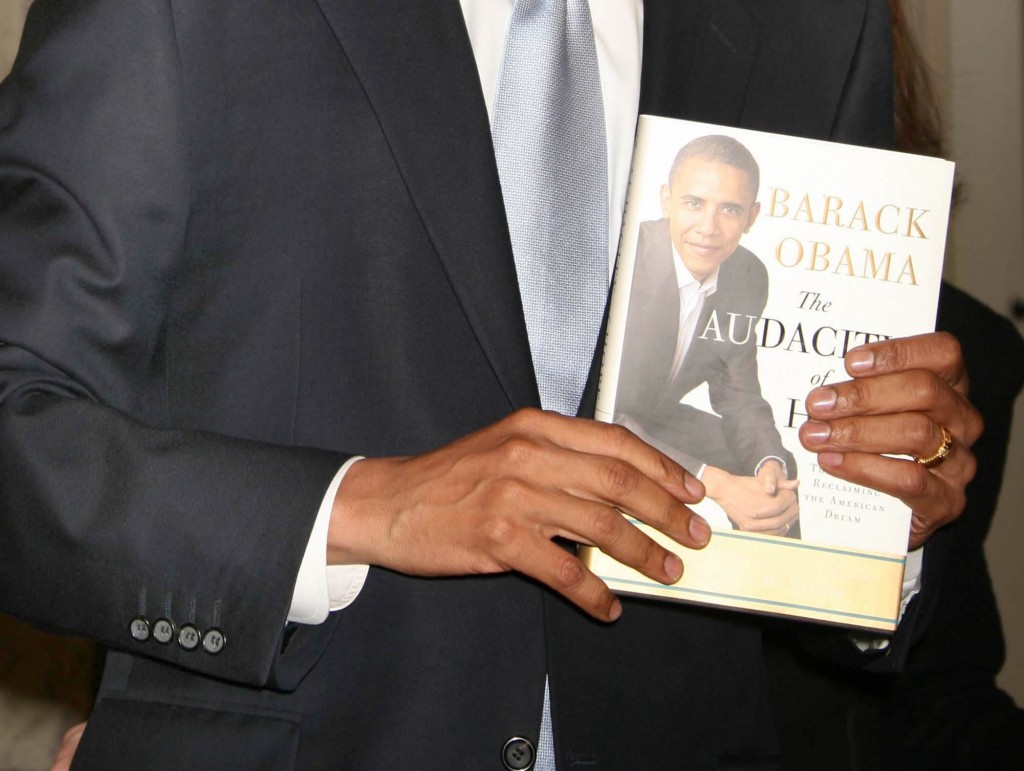After President Barack Obama entered the White House in 2009, U.S. embassies around the world apparently felt that foreigners still did not know enough about him, despite the unprecedented blaze of global publicity surrounding his election. As has been remarked, U.S. public diplomacy in the age of Obama often amounts to the same thing as publicity for the President himself, with American institutions serving as megaphones for his political message.
Embassies in countries from France to Indonesia decided that the American taxpayer would like to give away copies of Obama’s two books—Dreams from My Father and The Audacity of Hope—for the enlightenment of the locals. In Paris, they were still dishing out copies of the 16-year-old Dreams from My Father as recently as March of this year.
The State Department’s generosity with public funds to promote Obama’s literary efforts—at a time when it has been closing American libraries overseas to cut costs—was revealed last week by The Washington Times, which reported that State had bought more than $70,000 worth of the two books for Christmas “gratuities” and stocking of “key libraries” abroad.
A review of the expenditures in a federal database did not reveal any examples of State Department purchases of books by former Presidents George W. Bush or Bill Clinton, according to the Times.
The State Department defended the book purchases as “standard practice,” which clearly it is not, while White House spokesman Jay Carney called the operation an “embassy-based decision,” which the White House “didn’t have anything to do with.” If that is the case, embassies around the world must be in telepathic contact, considering the timing of the purchases.
According to the Times, the U.S. embassy in Egypt, for instance, spent $28,636 in August 2009 for copies of Dreams from My Father, on top of an order of more than $9,000 for the book six weeks earlier. About the same time, the U.S. embassy in South Korea spent more than $6,000 to buy copies of the same youthful memoir. A month later, the U.S. embassy in Jakarta shelled out more than $3,800 for hardcover copies of the Indonesian version of The Audacity of Hope.
Leslie Paige, a spokeswoman for Citizens Against Government Waste, a watchdog group, very reasonably said that if the federal government is looking to cut costs, eliminating purchases of Obama’s books would be a good place to start. “It’s inappropriate for U.S. taxpayer dollars to be spent on this,” she said. “This sounds like propaganda.”
Inappropriate? Yes. Propaganda? Not really. Propaganda would involve advancing U.S. views and policies. This is personal promotion for Obama and his writings. When The Audacity of Hope was published in 2006, The New York Times commented that the book “is much more of a political document. Portions of the volume read like outtakes from a stump speech, and the bulk of it is devoted to laying out Mr. Obama’s policy positions on a host of issues, from education to health care to the war in Iraq.”
Indeed, the book developed many themes that Obama was to use in his 2008 presidential campaign. Today, foreigners—like most Americans—might be more interested in the 2012 election.
The data unearthed by The Washington Times reveal only the total amounts spent, not the numbers of books bought or whether the State Department, and thus the taxpayer, got a bargain. Prices quoted by Amazon.com today range from $63.95 for a “collectible” hardcover edition of Dreams from My Father to $0.01 (or one cent before the $3.99 shipping cost) for a used copy of The Audacity of Hope.
So, for the State Department’s $70,000, you could get about 1,100 lavish collectible volumes at $63.95 each, about enough to supply the Luxembourg army with a few to spare, or 7 million one-cent copies, one for every inhabitant of Papua New Guinea, assuming there are that many available. Of course the taxpayer would also have to carry the cost of shipping by diplomatic bag. Either way, it is probably not how most Americans think the State Department should spend its time—or its money.


























